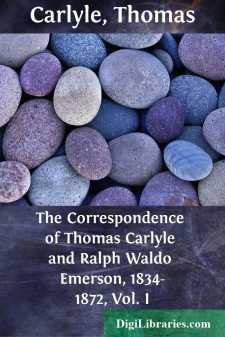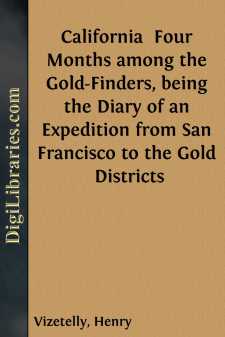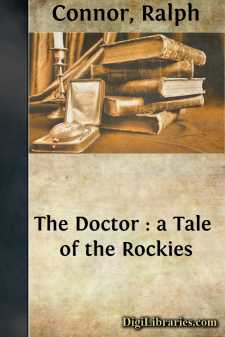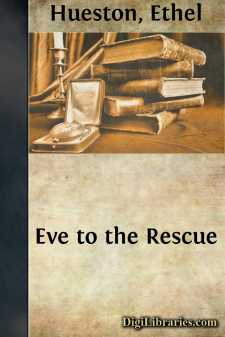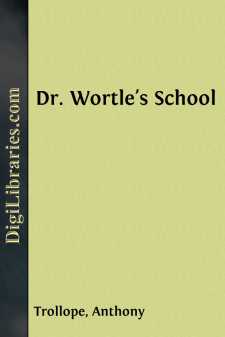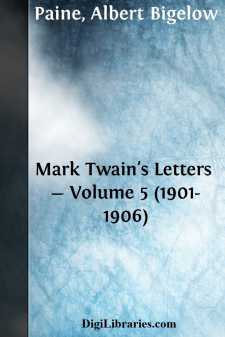Literary Collections
- American 84
- Ancient, Classical & Medieval 14
- Asian 1
- Australian & Oceanian 1
- Canadian 55
- Continental European 121
- English, Irish, Scottish, Welsh 179
- Essays 160
- General 24
- Letters 46
- Middle Eastern 1
Literary Collections Books
Sort by:
by:
Thomas Carlyle
I. Emerson to Carlyle Boston, Massachusetts, 14 May, 1884 My Dear Sir,—There are some purposes we delay long to execute simply because we have them more at heart than others, and such an one has been for many weeks, I may say months, my design of writing you an epistle. Some chance wind of Fame blew your name to me, perhaps two years ago, as the author of papers which I had already distinguished (as...
more...
by:
Henry Vizetelly
CHAPTER I. Clearing the Faranolles Making the entrance to the Bay of San Francisco The passage through the Strait Appearance of the Bay Town of San Francisco The anchor is let go The Author goes on shore His bad luck Sweeting's Hotel The Author and Mr. Malcolm propose visiting the American settlements They become acquainted with Captain Fulsom and Mr. Bradley Object of the Author's visit to...
more...
by:
Honore de Balzac
CHAPTER I. AN OLD MONASTERY "Come, deputy of the Centre, forward! Quick step! march! if we want to be in time to dine with the others. Jump, marquis! there, that's right! why, you can skip across a stubble-field like a deer!" These words were said by a huntsman peacefully seated at the edge of the forest of Ile-Adam, who was finishing an Havana cigar while waiting for his companion, who...
more...
by:
Kuno Francke
THE LIFE OF SCHILLER BY CALVIN THOMAS, LL.D. Professor of Germanic Languages and Literatures, Columbia University He kept the faith. The ardent poet-soul, Once thrilled to madness by the fiery gleam Of Freedom glimpsed afar in youthful dream, Henceforth was true as needle to the pole. The vision he had caught remained the goal Of manhood's aspiration and the theme Of those...
more...
THE ART OF DISCRIMINATION The world divides itself into people who can discriminate and people who cannot discriminate. This is the ultimate test of sensitiveness; and sensitiveness alone separates us and unites us. We all create, or have created for us by the fatality of our temperament, a unique and individual universe. It is only by bringing into light the most secret and subtle elements of this...
more...
by:
Ralph Connor
THE OLD STONE MILL There were two ways by which one could get to the Old Stone Mill. One, from the sideroad by a lane which, edged with grassy, flower-decked banks, wound between snake fences, along which straggled irregular clumps of hazel and blue beech, dogwood and thorn bushes, and beyond which stretched on one side fields of grain just heading out this bright June morning, and on the other side a...
more...
by:
Ethel Hueston
IN DEFIANCE OF DUTY “To-morrow being Saturday afternoon,” began Eveley, deftly slipping a dish of sweet pickles beyond the reach of the covetous fat fingers of little niece Nathalie,—“to-morrow being Saturday afternoon—” “Doesn’t to-morrow start at sunrise as usual?” queried her brother-in-law curiously. “As every laborer knows,” said Eveley firmly, “Saturday begins with the...
more...
by:
Anthony Trollope
CHAPTER I. DR. WORTLE. The Rev. Jeffrey Wortle, D.D., was a man much esteemed by others,—and by himself. He combined two professions, in both of which he had been successful,—had been, and continued to be, at the time in which we speak of him. I will introduce him to the reader in the present tense as Rector of Bowick, and proprietor and head-master of the school established in the village of...
more...
An editorial in the Louisville Courier-Journal, early in 1901, said:"A remarkable transformation, or rather a development, has takenplace in Mark Twain. The genial humorist of the earlier day is nowa reformer of the vigorous kind, a sort of knight errant who doesnot hesitate to break a lance with either Church or State if hethinks them interposing on that broad highway over which he believesnot a...
more...
by:
Kuno Francke
THE LIFE OF JEAN PAUL By BENJAMIN W. WELLS, Ph.D. Author of Modern German Literature. "The Spring and I came into the world together," Jean Paul liked to tell his friends when in later days of comfort and fame he looked back on his early years. He was, in fact, born on the first day (March 21) and at almost the first hour of the Spring of 1763 at Wunsiedel in the Fichtelgebirge, the very heart...
more...


